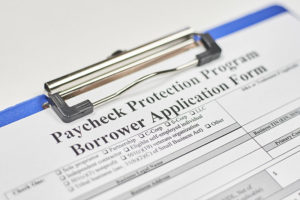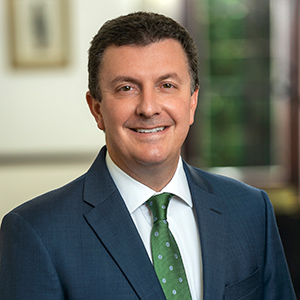If Your PPP Loan Is Under $2 Million, the SBA Now Presumes You Made Your Necessity Certification in Good Faith
 Many business owners who obtained loans through the Paycheck Protection Program (PPP) no longer need to be concerned that the Small Business Association (SBA) will question the accuracy of their claim that they needed the money to cover payroll and other expenses. In guidance the SBA issued on May 13, 2020, the agency provided safe harbor to borrowers that obtained less than $2 million in PPP loans, conclusively determining that they sought those funds in good faith.
Many business owners who obtained loans through the Paycheck Protection Program (PPP) no longer need to be concerned that the Small Business Association (SBA) will question the accuracy of their claim that they needed the money to cover payroll and other expenses. In guidance the SBA issued on May 13, 2020, the agency provided safe harbor to borrowers that obtained less than $2 million in PPP loans, conclusively determining that they sought those funds in good faith.
PPP Funds Must Be “Necessary to Support The Ongoing Operations of The Applicant”
As anyone who has applied for a Paycheck Protection Program (PPP) loan is keenly aware, prospective borrowers must certify several facts relating to their eligibility in order to obtain loan proceeds. One such certification is that the “[c]urrent economic uncertainty makes this loan request necessary to support the ongoing operations of the Applicant.” Requiring an applicant to make that representation makes sense, considering the intended purpose of PPP loans is to provide a desperately needed lifeline to small businesses that would otherwise go under or furlough employees due to the COVID-19 pandemic.
Backlash After Large Companies Obtained PPP Loans Instead of Small Businesses
But after large, publicly-traded, and presumably well-funded corporations like Shake Shack and Ruth’s Chris Steak House qualified for and obtained PPP loans, this particular certification came under much-deserved scrutiny. Worried about the bad press and damaged consumer reputation that befell these large corporate borrowers, many similarly situated companies began to reassess their need for the PPP loan proceeds they received. More accurately, borrowers, both large and small, became concerned that the SBA would question the truthfulness of their representations that they needed PPP cash to support their ongoing operations.
Safe Harbor For Borrowers That Return Funds
To resolve these issues and encourage the return of PPP loan funds from businesses whose representations as to the need for PPP funds were questionable, the SBA offered such borrowers the opportunity to return all PPP loan proceeds by May 14, 2020 (previously May 7, 2020). For borrowers that repay their PPP loans by that date, the SBA will conclusively determine that they made their original necessity certification in good faith and will take no action against the borrower concerning the original loan.
However, the SBA’s safe harbor still left many business owners with a sense of unease that they may face questions about the veracity of their purported need for a PPP loan. While a borrower may have made an honest and good faith claim that it needed a PPP loan to keep workers on its payroll and cover other necessary expenses, what would happen if the SBA came to a different conclusion? Would the SBA demand the return of the proceeds? Would the borrower be subject to other penalties or consequences?
PPP Loan Under $2 Million? You’re In The Clear.
With guidance it issued on May 13, 2020, the SBA provided many borrowers with peace of mind that their necessity certification will not be subject to any further scrutiny. In consultation with the Department of the Treasury, the SBA determined that the following safe harbor will apply to SBA’s review of PPP loans with respect to this issue:
“Any borrower that, together with its affiliates, received PPP loans with an original principal amount of less than $2 million will be deemed to have made the required certification concerning the necessity of the loan request in good faith. “
The SBA determined that the safe harbor was appropriate because “borrowers with loans below this threshold are generally less likely to have had access to adequate sources of liquidity in the current economic environment than borrowers that obtained larger loans.”
In other words, if the principal amount of your PPP loan is under $2 million, you will not have to show that you had exhausted your search for other sources of liquidity. You can proceed with the certainty that your economic need for the loan is unlikely to be questioned.
If you have questions regarding the Paycheck Protection Program or have any other concerns or issues related to the COVID-19 pandemic, please contact the Business Law Practice Group at Kreis Enderle today.
